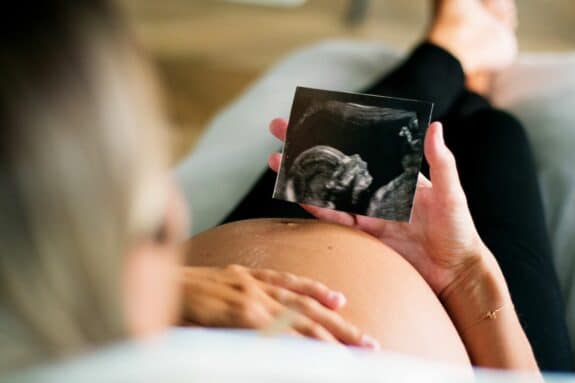There is no denying that pregnancy is an incredible time in a woman’s life. It’s also a time of significant changes for her body. As her baby grows, her body makes many adjustments, both externally and internally. And while many of the changes are ones that we can see a new study looks at cellular ways our body ‘remembers’ the experience.
Published online on September 21, 2023, the journal Science reveals that the connection between a mother and her growing fetus is even more intricate and long-lasting than previously thought. While scientists have long understood that a mother’s body adjusts to prevent her immune system from attacking the fetus, this new research sheds light on the cellular crosstalk that takes place between a mother and her offspring.
Conducted by Sing Sing Way, MD, PhD, Division of Infectious Diseases at Cincinnati Children’s and the Center for Inflammation and Tolerance, explores how prior pregnancies impact future pregnancies and how mothers remember their babies. The findings provide valuable insights into the resilience of mothers, which can help reduce the risk of complications in subsequent pregnancies.
“By investigating how prior pregnancy changes the outcomes of future pregnancies — or in other words how mothers remember their babies — our findings add a new dimension to our understanding of how pregnancy works,” Way says. “Nature has designed built-in resiliency in mothers that generally reduces the risk of preterm birth, preeclampsia, and stillbirth in women who have a prior healthy pregnancy. If we can learn ways to mimic these strategies, we may be better able to prevent complications in high-risk pregnancies.”
Understanding how the immune system changes during pregnancy not only has implications for improving outcomes in high-risk pregnancies but also has the potential to advance research in vaccine development, autoimmunity, and organ transplant rejection prevention.
In a previous study published in Nature in 2012, Way and colleagues discovered that a woman’s body becomes less likely to reject a second pregnancy with the same father after experiencing a first pregnancy. This phenomenon is attributed to the presence of immune suppressive T cells that are specific to the subsequent fetus and instruct the immune system to cooperate with the pregnancy. These cells remain in the mother’s body for years after giving birth.
“Very small numbers of fetal cells can be found in the heart, liver, intestine, uterus and other tissues,” Way says. “The fact that we are made up of more than just cells with our own genetics, but also cells from our mothers and our children is a fascinating idea.”
This research revealed that the longevity of these memory-suppressive T cells is mediated by fetal microchimeric cells, a small population of baby cells that remain in the mother’s body after pregnancy. This biological evidence confirms a more special connection between mothers and children than previously known.
While it was initially surprising to find these suppressive cells persisting beyond childbirth, it is believed that the presence of fetal microchimeric cells is responsible for maintaining the protective memory response. Researchers also noted that the presence of maternal microchimeric cells transferred to the child during pregnancy can contribute to the success of organ transplants from mothers.
The interplay between microchimeric cells raises intriguing questions about their interactions and accumulation limits. Each individual can only have one set of microchimeric cells at a time, and these cells are displaced by new fetal cells in subsequent pregnancies. However, mothers retain a small number of suppressive T cells from each pregnancy, which act as a fail-safe mechanism and can be called into action during future pregnancies.
This interesting research deepens our understanding of the complex relationship between mothers and their babies and may lead to new strategies for preventing complications in high-risk pregnancies. Moreover, it paves the way for further advancements in fields such as vaccination, autoimmunity, and organ transplant research.
Related Articles:







